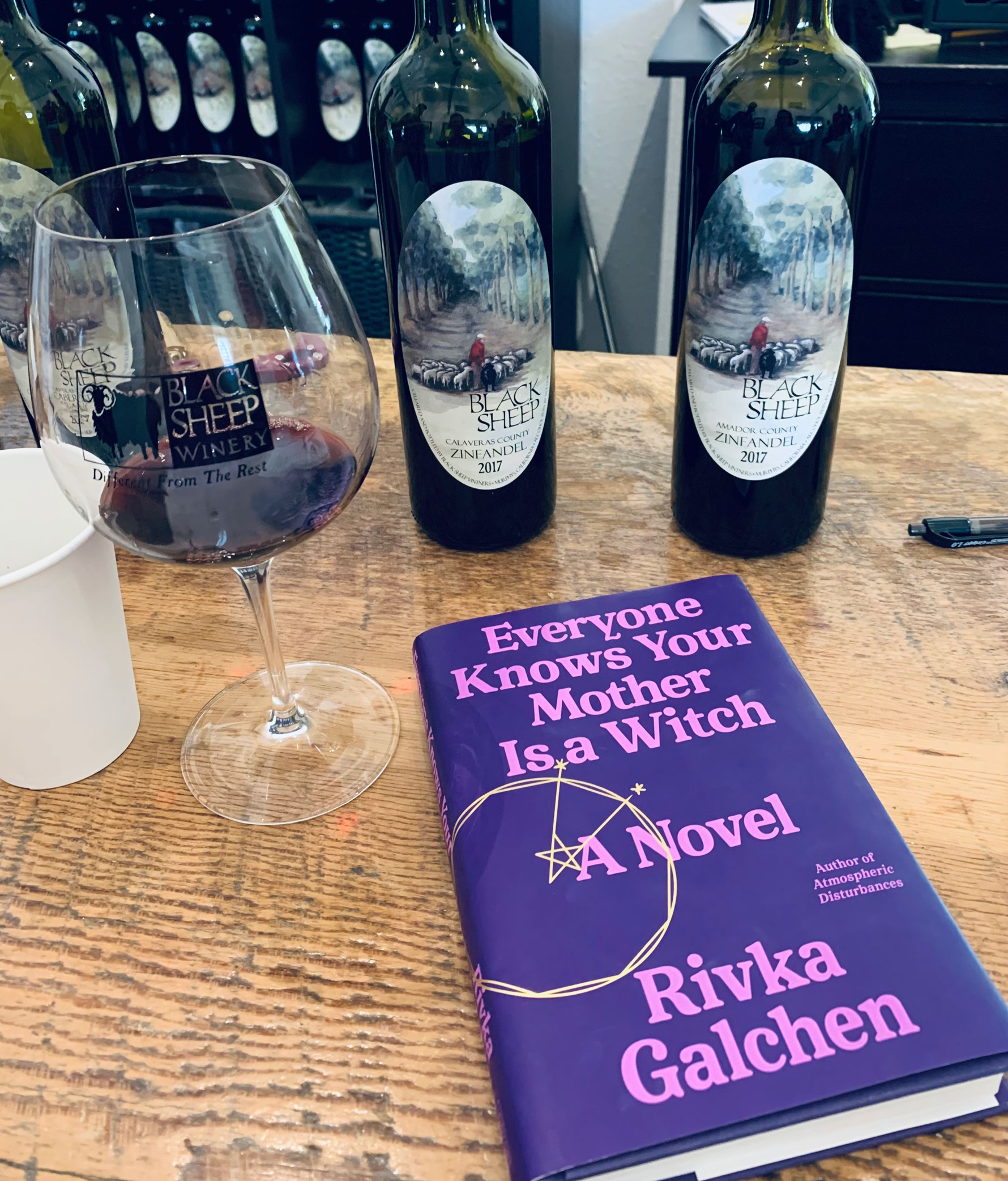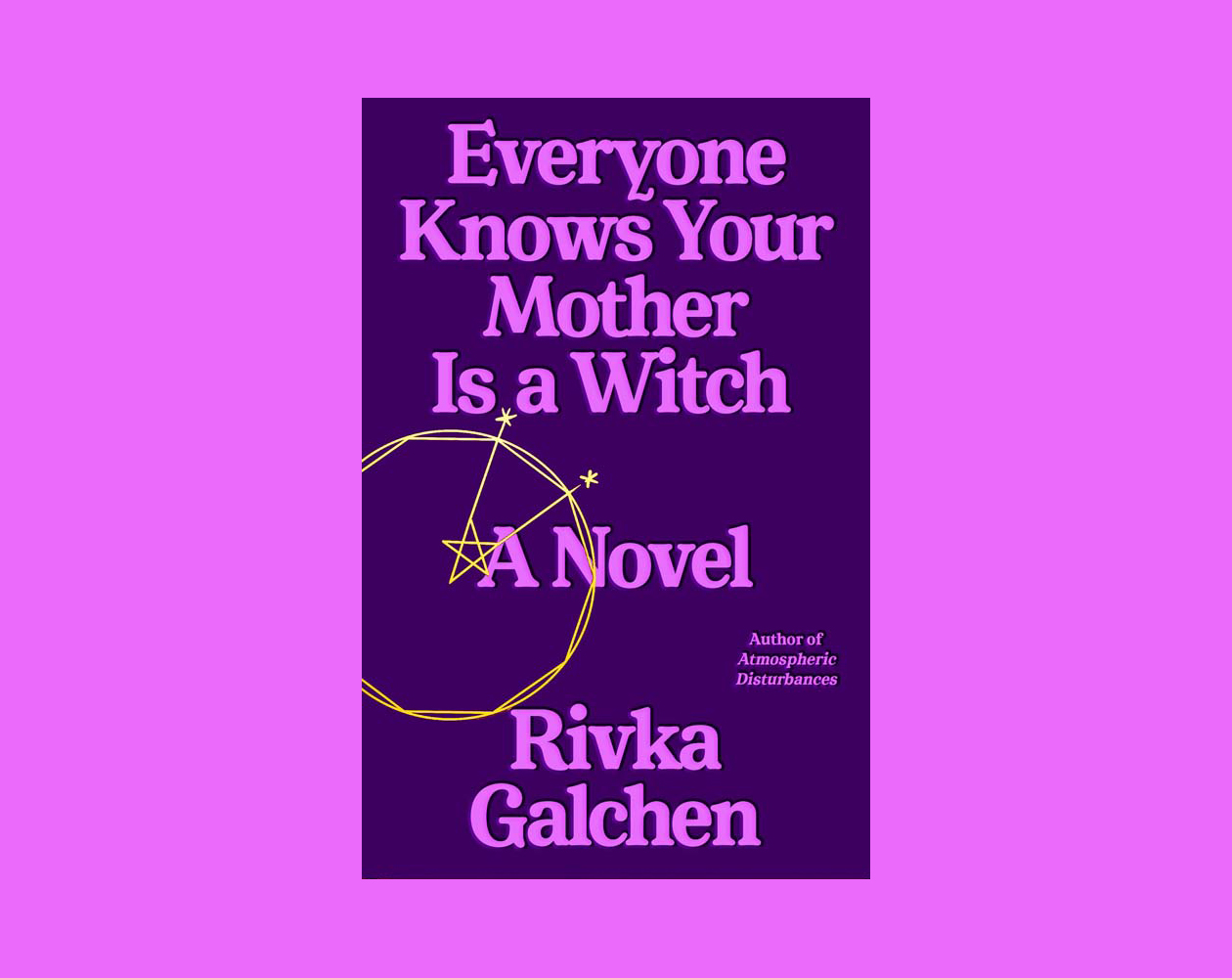Week 11: Everyone Knows Your Mother Is a Witch
Five books down, one to go. This week, we start our final book of the season: Rivka Galchen's Everyone Knows Your Mother Is a Witch.

Andrew Womack: Welcome back to another week of Camp ToB 2021! Here's what this all is: Each week of the summer, we're discussing a novel (selected by you, the readers), at the pace of two books a month. At the end of each month, you vote for one title as your favorite, and at the end of the summer, the community will pick one of the three favorites to advance to a berth in the 2022 Tournament of Books (ToB).
(FYI, the five books we read this summer that don't win may still qualify for the 2022 ToB's long or short lists.)
We're now down to our final novel of the season: Rivka Galchen's Everyone Knows Your Mother Is a Witch. And this week we're discussing the first half—through page 137—of the book. At this point in the story, we've met our hero—or is she a witch?—Katharina Kepler, who's living in 1618 Leonberg, Germany, and has been accused of witchery by Ursula Reinbold, who claims Katharina made her drink a potion that made her ill. We end the book's first half amidst the depositions for (and against) Katharina at her trial for witchcraft.
Our Activity Leader this week is Jessica Klahr. Jessica, please introduce yourself to our Campers!
Jessica Klahr: Hi, everyone! I've been following the ToB and now Camp ToB for several years, after first hearing about it on So Many Damn Books (my favorite books podcast). I've worked at Barnes & Noble in the East Bay of California on and off for eight years and currently work there one night a week to keep the awesome discount.
Andrew: Not gonna lie, I know a few people who have done this! So what do you spend that discount on?
Jessica: My preferred genre is literary fiction, specifically novels, but I also read short stories, memoirs, narrative nonfiction, and occasionally whatever the "hot" mystery/thriller of the moment is. Everyone Knows Your Mother Is a Witch was the book I was most looking forward to reading from the Camp ToB lineup so I'm excited that I get to discuss it on a platform like this.
Andrew: Me too! So far, what's your impression of the book?
Jessica: The style of storytelling pulled me in right away as it called to mind two of my favorite books of the last couple years. The formatting reminded me of Women Talking by Miriam Toews, with a scribe telling the story of another person or people. And the concept of women's problems being caused by another female in the community who is seen as being odd or morally misguided in some way reminded me of the main character at the beginning of Anna North's Outlawed. That being said, Katharina's story is all her own and she still feels completely in control of her narrative, even as we're hearing things secondhand through her neighbor and confidant, Simon.
Andrew: I have fallen for the character of Katharina—her snark, her wisdom, her fierce love for her children—and we're going to get into that in a bit. Though I'm curious to see how (or if) our hearing the novel through Simon's transcriptions (because Katharina cannot read or write), plays into the story at all. Any thoughts there?
Jessica: Her eccentricities set her far apart from the townspeople but also endear her more to the reader. I love how she speaks to her grandchildren as people worth hearing from (as they are) and the unabashed way she never strays from being her true self.
Andrew: Yes, there's a real theme of Katharina being in this predicament precisely because she doesn't adhere to town's standards in ways like that. Please continue!

Jessica: Through Simon's recording of Katharina's account, we can see the respect he has for her and the painstaking care he takes to state things in her own words for her. The fact that he takes the reins in his own chapters to share his point of view on the current happenings demonstrates this even more. There's a concentrated effort to keep their two perspectives separate, though we know they are both coming from Simon's hand. Of course some things may get lost in translation from mouth to paper, but if Katharina had the length of the text read aloud to her I think she would find it an accurate portrayal of her feelings.
Andrew: I like to think so as well. It feels true, both in the sense of the accuracy and realness of the story, as well as in the way that I don't feel we're being hoodwinked. At least I hope not!
So what do you think—is this a comedy? Or a tragedy? I feel like anything goes right now, but where do you think we're headed?
Jessica: So far I'd say it's a prime example of the mash-up genre tragicomedy. Katharina's circumstances are dire and discouraging at best, but her tone and observations about the people she encounters and the situations she finds herself in give the narration an undercurrent of humor.
Andrew: What else?
Jessica: I love her nicknames for her enemies, like the Cabbage, the Werewolf, and the False Unicorn and the offhanded scenes like when she stands up for the pigherd at the courts, even though her help isn't appreciated since she's a woman. It helps to balance out the infuriating scenes with Einhorn and other townspeople. Katharina is an inherently sympathetic character from page one, so we can only hope, despite the odds being stacked against her thus far, that she'll somehow come out alright in the end.
Andrew: For anyone not reading along in the book, the pigherd—a pig farmer—has appeared at the court office at the same time as Katharina in order to complain that his employer stole the hat off his head and threw it in the mud. The court clerk waves him off, but Katharina stands up for him, insisting the clerk hear his complaint. It's a small moment, but important in showing Katharina's fearlessness in speaking truth to power.
And it's yet another reason I'm rooting so hard for Katharina, and am ready to go to war with many of the townspeople. Just hand me the pitchfork.
Something I want to call out is how well the book weaves in the development of characters in the background, especially Anna, Simon's 25-year-old daughter, whose smallpox scars Katharina advises helping with cosmetics. What about you?
Jessica: I totally agree. Galchen is already juggling Katharina and Simon's perspectives, the testimonies of various townspeople, and letters to Einhorn, [a classic bureaucrat, the ducal governor who may ultimately determine Katharain's fate —ed] so it's even more remarkable that she still makes time for background characters to shine.
Andrew: Yes! Even if some of the characters aren't important to the narrative, exactly, and maybe we do or don't learn much about them—though I suppose we'll find out!—but it all works together to create a very true-to-life feeling for the book. They create such a rich tapestry for the novel.
Jessica: I also found Anna's development sweet so far and appreciated her rapport with her father. I'm also interested in Simon's story, both past and present, and seeing how Katharina's reputation continues to negatively impact her families' lives, like Greta and the Pastor having to relocate. Another favorite background element of mine is Katharina's love of cows. I think fitting a cow into the paperback design for this book would be appropriate.
Andrew: Oh yes, her lovely cow, Chamomile. The name, which I believe relates to Chamomilla, a common herbal/homeopathy ingredient, made me wonder about the contents of Katharina's remedies that she brews up for some of the other characters. All these herbs and flowers, and really, how much research went into this particular period—it's an interesting view of "medicine" versus "witchcraft," and those details are pretty fascinating.
Jessica: I enjoyed those components as well. I don't know that I ever considered what kind of herbs and things were prevalent in Germany during this time period but now I want to know more.
Andrew: Same and same.
Everyone Knows Your Mother Is a Witch by Rivka Galchen

In the small town of Leonberg in 1618, Katharina, an illiterate widow, is known by her neighbors for her herbal remedies and the success of her children, including her eldest, Johannes, the renowned author of the laws of planetary motion. It's enough to make anyone jealous, and Katharina has done herself no favors by being out and about and in everyone's business. So when the deranged and insipid Ursula Reinbold accuses Katharina of offering her a bitter, witchy drink that has made her ill, Katharina is in trouble. Her son must turn his attention from the music of the spheres to the job of defending his mother. Facing the threat of financial ruin, torture, and even execution, Katharina tells her side of the story to her friend and neighbor Simon, a reclusive widower imperiled by his own secrets.
Book description excerpted from publisher's summary and edited for length.
Jessica: It's especially interesting, given her situation, that the thing she is best at is the thing causing most of her turmoil. Katharina gave out these "prescriptions" with the intention of helping people and making their lives better, but almost any of them, shed in a different light, can be used as proof of her witchiness and ill will.
Andrew: A lot of the humor in the book exists right there in that gap between what the townspeople thought then and what we know now. Contrasting old thinking against the readership's contemporary knowledge is a pretty common device, but it's used in some especially effective ways here.
Jessica: Such as the old German folktales included throughout the book!
Andrew: Like those! What were your thoughts about them?
Jessica: I thought Katharina's interest in them may have piqued since her own life has turned into a folktale of sorts. Around page 83, I liked the back and forth between Susanna and Katharina, who each had different opinions on what was important about a story. Katharina cared about what people looked like and what may have been going on behind the scenes while Susanna preferred to stick with what is stated as fact in front of her. When Katharina speculates that the reason a man in a story is being chased by three women was because he had gotten them pregnant and left them, Susanna says, "Okay, but it doesn't say anything like that here." Katharina returns, "Yet we know, don't we? We know how likely that is."
The passage continues:
Susanna returned to reading. The three very angry young women nearly killed the young man. The man had a difficult and foreign name that never stuck in my head. The women caught up to him! They were right on the point of tearing him limb from limb. They planned to scatter his body parts and let them be eaten by crows. That was very interesting. Susanna thought so, too.
These stories seem to serve as distraction but also enrichment, which some may argue parallels the experience of reading lore like this still today.
Andrew: Warping young minds! What a witchy act! So, do you think there may be any witchcraft in our midst in this book?
Jessica: If anything, Katharina's accusers are the true witches—
Andrew: I hate them so much.
Jessica: —causing mischief where none is due for personal gain. The local baker, Jerg Hundersinger said it best on page 21 when he called the accusers "half-formed people….hungry people spiritually," and let Katharina know that "it's those of us who do nothing wrong that get into trouble." By including these lines so early in the book, we received a thesis statement for the trials Katharina will go through and the groupthink of the society she finds herself in. Paired with the False Unicorn's (Einhorn) desperation to not look foolish for mishandling the quarrel from the beginning, people like Katharina are doomed from the start. Though as a reader it's hard to detect any witchcraft from her, she will still be tried as if there is some and we can only hope that justice will somehow prevail in the end.
Andrew: I really do hope so. But I will say I'm finding the depositions to be pretty entertaining. Some hint at dangerous implications for Katharina, but others are just downright hilarious.
Jessica: The depositions are one of the major highlights for me as well. Even the various answers to the first question, having to do with the deposee being aware that any false statement will send their soul straight to Satan, could form some kind of story all their own. What do you make of Einhorn making a mistake and Katharina paying for that mistake? Is there any hope for our hero?
Andrew: Einhorn presents quite a few perils, doesn't he? I have faith that Katharina ultimately can outwit him without stoking his ire. And perhaps the reason I feel that way is—and I'm not even sure this is a complaint at this point—because the characters of Einhorn and Ursula Reinbold, our primary antagonists, are pretty thinly drawn. We don't know much about them except that they're "bad," and maybe that will change in the second half—for better or worse, for Katharina. I'm curious to find out one way or the other.
Jessica: Yes that contributes to the readers' siding with Katharina and her family inherently. Even if we did have a few sections from Ursula's perspective somehow, I can't imagine feeling more than a small amount of compassion for her. Einhorn isn't very sympathetic either, given that the main thing we know is his actions, or lack thereof, have upended Katharina's life and that he fills his post begrudgingly. Like you said, maybe they'll surprise us later on with an outrageous showing of moral character. Though I think Galchen gave us all that we needed to know about them and saved the richer development for characters more worth our time.
Andrew: I agree. I really do feel we're in good hands here. Really excited to see where the book takes us next!
Thank you for joining us this week, Jessica! Everyone, I'll be back next week to discuss the conclusion of Everyone Knows Your Mother Is a Witch, when it'll be time to vote on which of our August books heads to our end-of-summer finale—and then it's up to you to decide which of our summer reads makes it to the 2022 Tournament of Books. See you then!
The Camp ToB 2021 Calendar
- June 2: No One Is Talking About This through part one
- June 9: No One Is Talking About This to the end
- June 16: Detransition, Baby through chapter four
- June 23: Detransition, Baby to the end
- June 30: Klara and the Sun through part three
- July 7: VACATION
- July 14: Klara and the Sun to the end
- July 21: Whereabouts through "At the Cash Register"
- July 28: Whereabouts to the end
- Aug. 4: Peaces through chapter eight
- Aug. 11: Peaces to the end
- Aug. 18: Everyone Knows Your Mother Is a Witch through page 137
- Aug. 25: Everyone Knows Your Mother Is a Witch to the end
- Sept. 1: Announce summer champion
You can find all our summer titles at our Camp ToB 2021 Bookshop list.
